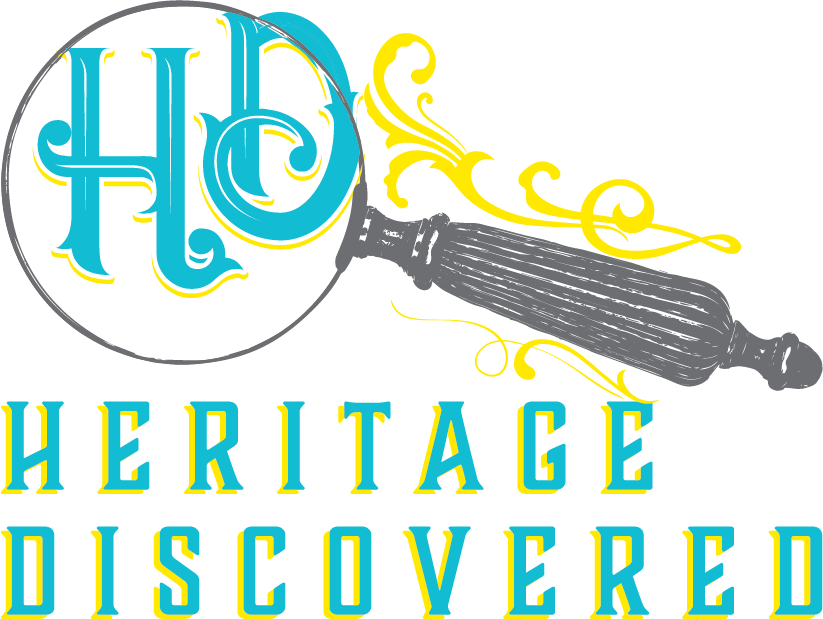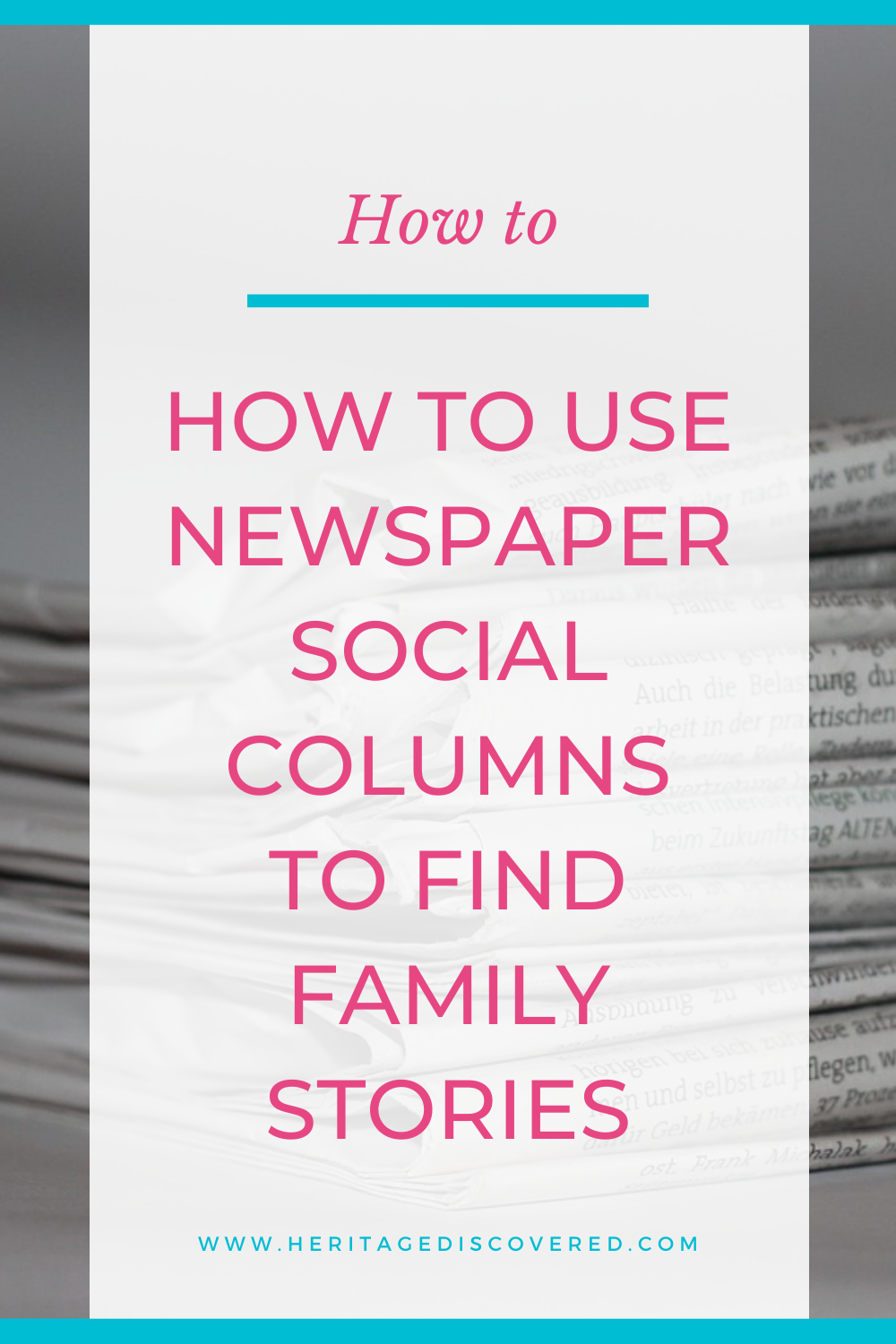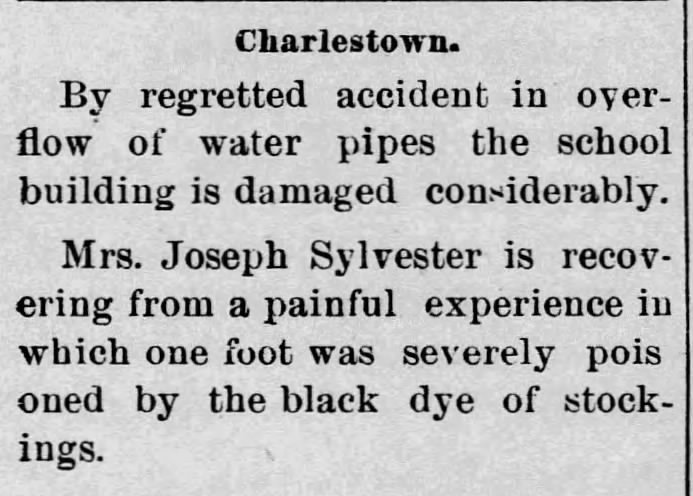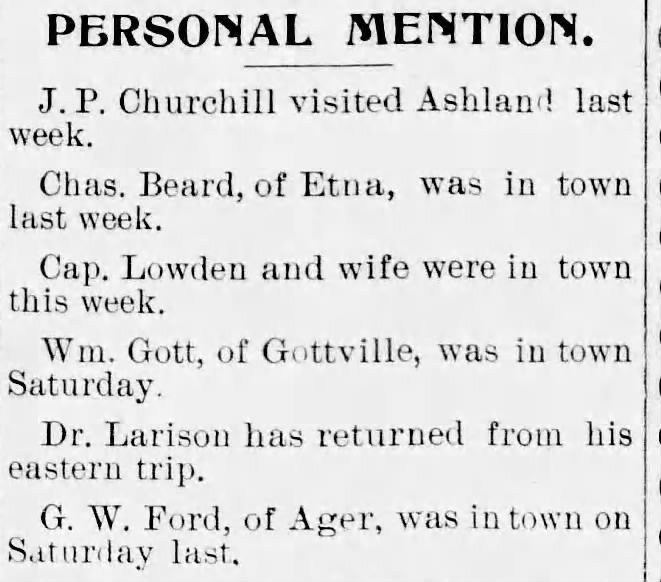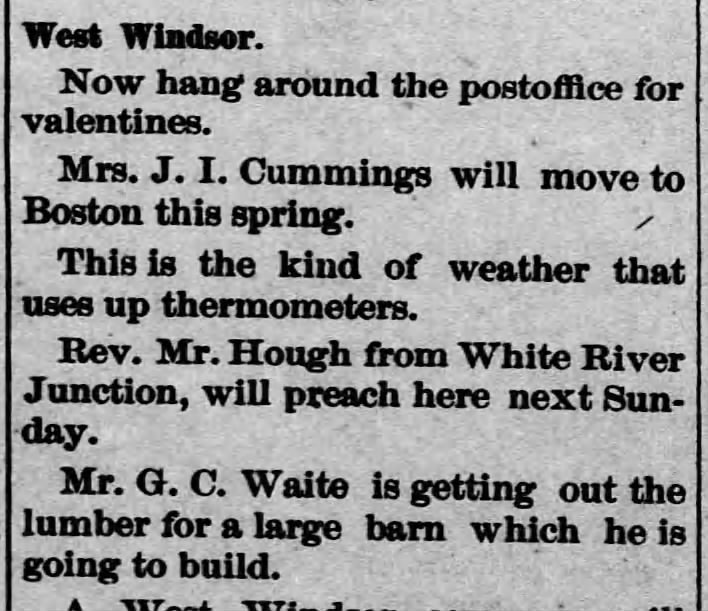How To Reveal Your Ancestors' Stories With The Scoop From Society Pages
*This post may have affiliate links, which means I may receive commissions if you choose to purchase through links I provide (at no extra cost to you). All opinions remain my own.
Have you searched for your ancestors in the newspaper?
Newspapers are an excellent source of information about your ancestors and one of my favorite genealogy resources to seek out.
Since they, of course, covered the news of the day, you may dig up an article about your family, covering an event they experienced in detail.
But newspapers aren’t only great for uncovering featured articles about an ancestor.
They are also great for learning day-to-day things in their lives, like who was in town visiting or who was hosting a tea party.
One of the best ways to discover more about your ancestor’s everyday life is through the society pages in historical newspapers.
In this article, I discuss the importance of using society pages in your genealogy research, the types of genealogical information in them, and a few suggestions on where to search for them.
Related posts
How to Find and Use Hidden Clues in Obituaries
Why Should You Use Ethnic Newspapers For Genealogy Research?
Can’t Find Your Women Ancestors? You Need To Try Using Religious Records
A very short history of US newspapers
Weekly and monthly newspapers had been around since the 1600s in the US. But the first daily was the Pennsylvania Packet and Daily Advertiser, beginning in 1784.
By this time, about 35 papers were being published. But by the early 1830s, there were over 1,200 in circulation, most of which were weekly.
Most of these early attempts didn’t live too long, but new ones continued to spring up, expanding across the nation as people migrated west.
Over 15,000 papers were in circulation by the early 20th century.
With all these published papers, you have a good chance of spotting at least one of your family members in one!
Related posts
How Probate Records Can Help You find Your Female Ancestors
How To Trace Women In Your Family Tree With Veterans’ Pension Records
How To find And Get To Know Female Ancestors With Community Cookbooks
Why you should use the society page of a newspaper in your research
Society news articles were the way people kept up to date with what was happening in town.
Like today, people liked to share their latest news and keep up with what their neighbors and friends were up to. Society pages were basically gossip columns. They ensured our ancestors stayed informed about local events so they were connected to their community.
Each paper had its own editorial style on what they published, but many included a society page with the local happenings. These features have gold nuggets of genealogical information that you would not see anywhere else.
Through a society column, I learned my great-great-grandmother’s silk stockings poisoned her. I also found my great-grandfather had reunited with his long-lost sisters, separated when they were children.
Image source: "Charlestown," Springfield Reporter (Springfield, Vermont), 21 June 1907, p. 8, col. 1, , digital images, Newspapers.com (http://www.newspapers.com : accessed 11 November 2021).
Besides the opportunity to see your ancestors’ names in print, society pages also give you context into the social history of the times.
Through reading social columns, you can get a sense of what your ancestors were experiencing. You can discover what products people were buying, where people were traveling to, what clubs existed, and what new technologies were coming to the community.
You can come across society news sections under many different names. In some cases, it was the name of the town.
But some were more creative, like:
“Local Lines”
“Maple Grove Gossip”
“Laddonia Laconics”
“Roxbury Ripples”
“Underhill Utterings”
“Northfield Notes”
“Burlington Brevities”
Image source: "Personal Mention," Siskiyou Daily News (Yreka, California), 17 Oct 1901, p. 5, col. 3, digital images, Newspapers.com (http://www.newspapers.com : accessed 11 November 2021).
Gazettes got the local chatter to include in the columns from reporters, editors, and residents.
If your ancestor came from a smaller town where there may not be as many records available, don’t lose heart. Unlike other types of resources, smaller town publications are a great way to fill that gap as they were more likely to publish local gossip than urban ones.
And if your family lived in a location that didn’t have its own paper, a nearby larger town or city would often publish the news from the surrounding area.
Related posts
How To Use Online Family Trees The Right Way
6 Common Genealogy Mistakes And How To Avoid Them
11 Smart Strategies For Searching For Ancestors Who Changed Their Name
Using gossip columns for genealogy research
While any mention of your ancestor in a newspaper is exciting, you have a better chance of coming upon them in the society news section than a feature article because these covered all the small events happening in a community.
Some of the genealogical and biographical details you can uncover are:
Children born and/or died between censuses
Friends, neighbors, and associates
Extended family
Where they were traveling to
Where they worked
Married names of daughters
If they were experiencing an illness
If they moved
Visiting guests
School information like graduation lists and activities
Birth, marriage, and death announcements
Other random, day-to-day information about them
Image source: "West Windsor," Springfield Reporter (Springfield, Vermont), 13 February 1880, p. 2, col. 11, para. , digital images, Newspapers.com (http://www.newspapers.com : accessed 11 November 2021).
Through gossip columns, I’ve found blurbs about everything from barn fires to camping trips to illnesses to lawsuits and more.
Another bonus of searching the newspaper gossip column is that they included women, giving us more evidence about their lives when they didn’t create a lot of records themselves.
You may also see patterns about larger issues in the community. For example, in early San Francisco publications, I have found lists of everyone who had recently died of cholera.
Once you’ve found your relative in a newspaper article, be sure to pull out all the clues you can from it!
Related posts
How To Build The Best File Folder System For Your Genealogy Papers
Why You Need to Use Libraries and Archives in Your Genealogy
How to Use the Online Archive of California in Your Genealogy Research
Where to find historic newspapers with social columns
There are a lot of places you can search for historic newspapers, from big databases to offline sources.
Here are a few ideas to get you started:
1) GenealogyBank has over 13,000 city and town newspapers, 95% of which are exclusive to them. These date back to 1690.
2) The Library of Congress’ Chronicling America has digitized ones from most states from 1777 to 1963.
3) The Ancestor Hunt lists links to newspaper archives by state. The focus is on free sites, but some links are to paid sites.
4) State and county historical societies and libraries. Many of these repositories have microfilm papers, some of which have been digitized or indexed.
A good general guide to finding and searching newspapers is The Family Tree Historical Newspapers Guide by James M. Beidler.
Final thoughts
Newspapers are one of the best ways of uncovering your family’s stories, and social columns are a great place to start. You have a good chance of learning fascinating tidbits about their lives that you can’t find in most other types of resources.
But don’t stop there! Once you’ve found your ancestor in a social column, be sure to extract all the juicy details out of it that you can using a newspaper research worksheet. A tool like this will help you analyze the article and lead you to more records about your ancestors!
Thank you for supporting my small business!
